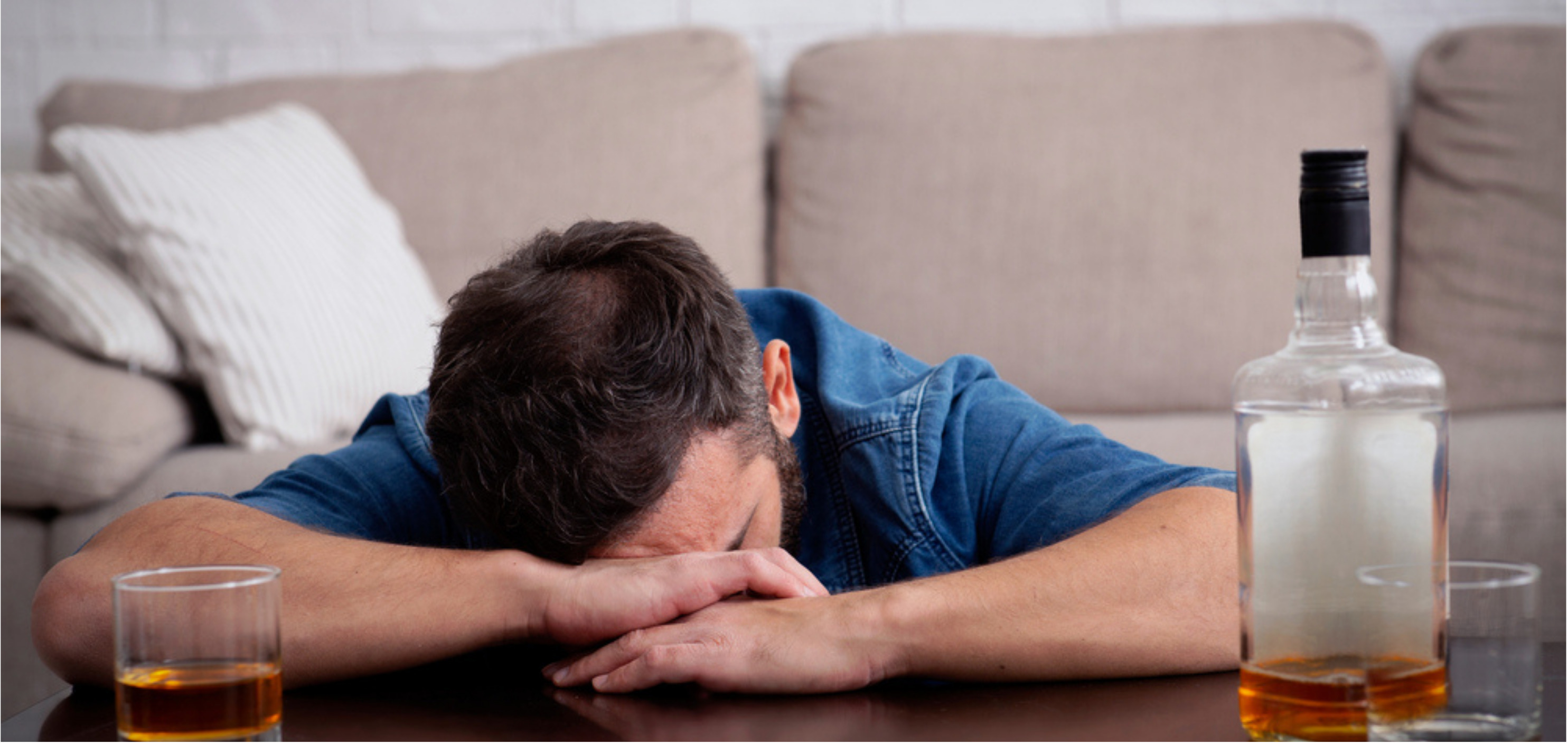
Written by:

Medically Reviewed by:
Last Updated:
February 14th, 2025
Autism and Addiction
Autism can make the world feel like it’s too much – too fast, too loud, too frightening. Add addiction and it can be like hitting fast-forward on all the already stressful parts of life. For some people, addiction starts as a way to escape the sensory overload or social pressures that come with autism but it often creates new challenges instead. The two conditions can feed off each other, making everything feel even more overwhelming. At Liberty House, we understand the unique link between autism and find ways to make daily life feel less like a struggle.
What is autism?
Autism is a condition that shapes how someone sees and experiences the world. It affects things like how a person communicates, connects with others and makes sense of what’s happening around them.
Autism usually presents when you are very young and then stays with you for life. No one knows exactly what causes autism but it is thought to be a combination of genetics, brain development and activity and certain environmental factors.
Recorded rates of autism in men and women vary significantly with men four times more likely to be diagnosed. However, it is thought that rates of autism in adults of different sexes may actually be a lot closer than this, with women often being misdiagnosed or passing under the radar altogether.
What is the autism spectrum?
Autism used to be broken down into different types like “classic autism” or Asperger’s syndrome but now it is called the Autism Spectrum Disorder (ASD). This change came from the DSM-5 which diagnoses ASD based on two main autism symptoms:
- Difficulties with social interaction and communication: This could mean finding it hard to share emotions, pick up on body language or facial expressions or maintain friendships and relationships.
- Sensory sensitivities and repetitive behaviours: This might look like repeating certain movements, sticking to strict routines, having deep interests in specific topics or reacting strongly (or barely at all) to things like loud noises, certain fabrics or strong smells.
These signs can show up differently for everyone, which is why it is called a spectrum. Looking at autism in this way can help us understand the unique ways autism affects each person.
What are the different levels of autism?
The DSM-5 also breaks autism down into three levels of support to show how much help someone might need:
Level 1: Requiring support
This is for people who can do a lot on their own but might find things like making friends or handling changes tricky. They often need a little extra guidance to manage routines or deal with repetitive habits.
Level 2: Requiring substantial support
People at this level have a harder time with important everyday things like talking to others or sticking to plans. They will need regular support just to get through their day and handle common challenges.
Level 3: Requiring very substantial support
This level is for those who find it really tough to communicate or do daily tasks on their own. They need constant help and care to feel safe and manage the world around them.
How do you know if you have autism?
Autism looks different for everyone, but there are some common autism symptoms that can include:
- Finding it hard to make eye contact or keep conversations going.
- Not always picking up on social cues, like body language or tone of voice.
- Speaking in ways that feel repetitive or sticking to specific words or phrases.
- Being super focused on certain hobbies or interests, sometimes to the point of tuning everything else out.
- Doing things like hand-flapping, rocking or spinning over and over again.
- Being really sensitive to sounds, textures, smells or tastes (or sometimes not noticing them much at all).
- Feeling stressed or upset when routines change or when things aren’t how they’re expected to be.
What’s the link between autism and addiction?
Studies show that addiction can be a big problem for people with autism, with one review finding that up to 36% of autistic individuals struggle with substance abuse. That is a significant number when you think about how tough life with autism already is.
Here are some of the reasons why autism and addiction often go hand in hand:
Looking for relief
Some people turn to alcohol, drugs or behaviours like gaming or the internet to get relief from autism symptoms. Maybe alcohol helps you feel less anxious in social situations or computer games offer an escape where everything feels more structured and predictable. At first, it might seem like these things are helping. But over time, they stop being a relief and start being a trap.
Your unique brain
Autism can change how your brain reacts to rewards. Things that feel good – like a buzz from alcohol or the pleasure from a big gambling win – might feel especially good if you are on the spectrum. That can make it easier to get stuck in a cycle where you keep going back for more, even when you know it’s not helping anymore.
Feeling alone
A lot of people with autism feel isolated or misunderstood and substances or addictive activities can become stand-ins for connection. While they may initially fill the space left by a lack of relationships, instead of solving the loneliness, addiction ultimately makes it can make it worse.
How can Liberty House Clinic help?
Dealing with addiction when you are living with autism is far from simple. Autism comes with its own set of challenges like struggling to talk about your feelings or needing routines or home comforts to feel safe. Traditional addiction treatment doesn’t always make space for the challenges of a dual diagnosis but Liberty House does things a little differently.
We have helped many people with autism and addiction find ways to feel in control again. We don’t try to fit you into a box or make you follow a plan that doesn’t work for you. Instead, we make sure you feel comfortable and supported while providing a rehab treatment plan that can soothe autism symptoms while resolving your addiction.
If you need more intensive care, UKAT London Clinic offers specialised autism and addiction treatment that focuses on both concurrently.
Whichever route you choose, here are some of the important forms of therapy for autism:
- One-to-one therapy to explore your feelings in your own time and way and discuss how autism is affecting your addiction.
- Group therapy to encourage connection and share experiences without overwhelming you.
- Family therapy to give your loved ones everything they need to make your life with autism and addiction easier.
- DBT and CBT to teach you to spot unhelpful autistic thoughts and replace them with ones that lead to better choices.
- Meditation and mindfulness to manage sensory overload and anxiety and stay present and steady when things get tough.
- Aftercare which provides weekly group therapy for a year and entrance to UKAT’s Alumni Network to keep your progress going long-term.
How to get help for autism and addiction
Living with autism and addiction can feel like the world just doesn’t get you but Liberty House knows exactly what you are going through. We will help you make sense of the world, tackle the challenges of autism and addiction and build a long-term recovery plan that works for you. Reach out today and we will tell you everything you need to know about our autism and addiction treatment programmes.
Frequently Asked Questions
(Click here to see works cited)
- UK Rehab. “Autism and Addiction | Mental Health and Addiction.” UK Rehab, https://www.uk-rehab.com/mental-health/autism-and-addiction/. Accessed 19 December 2024.
- Autism Speaks. “What causes autism?” Autism Speaks, https://www.autismspeaks.org/what-causes-autism. Accessed 19 December 2024.
- Pang, Camilla. “Autistic women and girls.” National Autistic Society, 2023, https://www.autism.org.uk/advice-and-guidance/what-is-autism/autistic-women-and-girls. Accessed 19 December 2024.
- World Health Organization (WHO). “Autism.” World Health Organization (WHO), 15 November 2023, https://www.who.int/news-room/fact-sheets/detail/autism-spectrum-disorders. Accessed 19 December 2024.
- Tick, Beata et al. “Heritability of autism spectrum disorders: a meta-analysis of twin studies.” Journal of child psychology and psychiatry, and allied disciplines vol. 57,5 (2016): 585-95. doi:10.1111/jcpp.12499. Accessed 19 December 2024.
- Genovese, Ann, and Merlin G Butler. “The Autism Spectrum: Behavioral, Psychiatric and Genetic Associations.” Genes vol. 14,3 677. 9 Mar. 2023, doi:10.3390/genes14030677. Accessed 19 December 2024.






